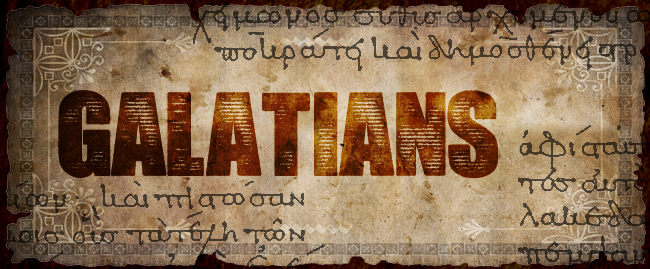Tonight we will be reading through Galatians 2:15-21. It is within these verses that we have the doctrine of justification by faith. A good resource for understanding this doctrine is the 1999 “Joint Declaration on Justification” between the Lutheran and the Roman churches. The statement was later adopted by the Methodist and the Reformed (Presbyterian) churches. Paragraph 11 of the Declaration gets to the very heart of what we mean by “justification by faith.” This paragraph reads:
11. Justification is the forgiveness of sins (cf. Rom 3:23-25; Acts 13:39; Lk 18:14), liberation from the dominating power of sin and death (Rom 5:12-21) and from the curse of the law (Gal 3:10-14). It is acceptance into communion with God: already now, but then fully in God’s coming kingdom (Rom 5:1f). It unites with Christ and with his death and resurrection (Rom 6:5). It occurs in the reception of the Holy Spirit in baptism and incorporation into the one body (Rom 8:1f, 9f; I Cor 12:12f). All this is from God alone, for Christ’s sake, by grace, through faith in “the gospel of God’s Son” (Rom 1:1-3).
Sections three and four of the Declaration entitled “A Common Understanding” provide a good bullet-point outline of the practical implications of the doctrine. If you have the time and inclination, I commit these sections to you.
The idea of justification is a Western Christian concept (going back to St. Augustine’s early 5th-century dispute with a British monk named Pelagius). For the Eastern Church (which never went through the Pelagian Controversy) salvation is not a matter of “justification” but of “deification” or theosis. This is the process by which we “become partakers of the divine nature” (2 Peter 1:3-11) so that we become united with God through Christ. For an Eastern Christian, the key passage in our readings is not v.16 speaking of justification, but v.20 where Paul states that it is “no longer I who live, but Christ who lives in me.” Throughout his writings, Paul speaks of dying to himself and rising in a mystical union with Jesus. See, Rom. 6:1-4, Phil. 1:21, 2 Cor. 5:14-15. We also see this idea of union with God through Christ in John’s gospel in the High Priestly Prayer (John 17:21) and in the parable of the vine and the branches (John 15). For the second part of our discussion tonight we will talk through what it means for us to confess that we no longer live but Christ who lives in us.
Dinner is at 6. Menu is paninis. Discussion about 6:45. You do not have to have read anything to join us and participate in the discussions. Hope to see you here and please bring a friend.
Do you not know that all of us who have been baptized into Christ Jesus were baptized into his death? Therefore we have been buried with him by baptism into death, so that, just as Christ was raised from the dead by the glory of the Father, so we too might walk in newness of life.
Romans 6:3-4

